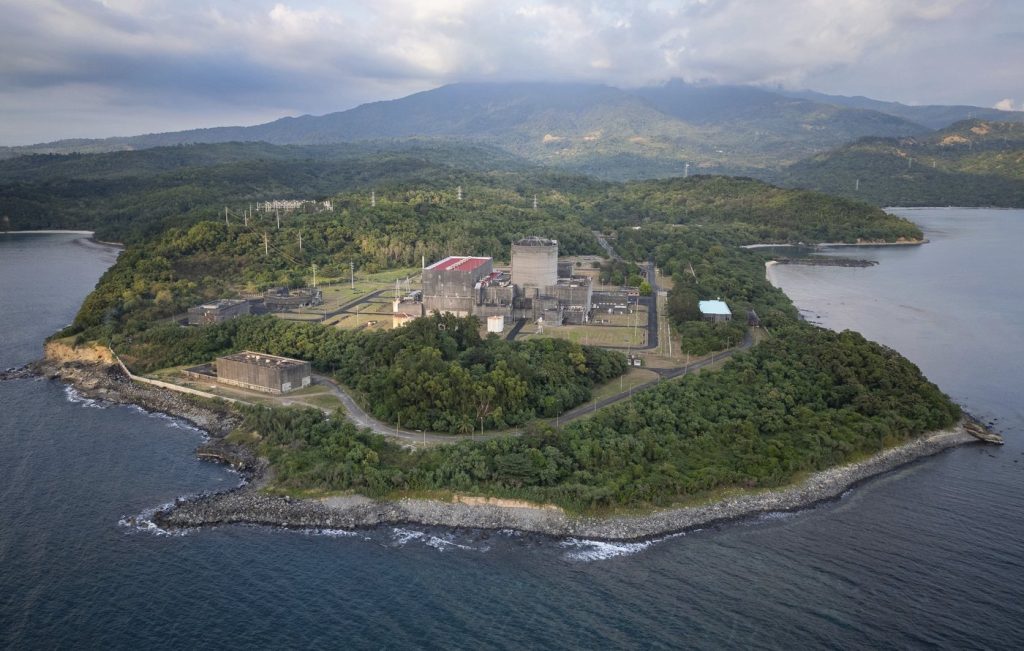JAKARTA, Indonesia (AP) — The Philippines is home to Southeast Asia's sole nuclear power plant, located in Bataan, approximately 40 miles from Manila. Completed in the 1970s, the plant has remained dormant for four decades, primarily due to safety concerns and corruption, without producing any energy. However, there is a renewed interest in developing nuclear energy in the Philippines and across Southeast Asia, as countries seek cleaner and more reliable energy sources.
Supporters of nuclear energy argue that it can play a significant role in combating climate change, as it does not emit greenhouse gases typically associated with fossil fuel consumption. Advances in technology have made nuclear reactors safer, more affordable, and capable of being smaller in scale, which appeals to countries looking to enhance their energy capacities and address environmental issues.
According to Faith Birol, the executive director of the International Energy Agency (IEA), there are signs that a new era for nuclear power is emerging globally. The IEA forecasts that by 2025, nuclear-generated electricity could reach historical highs due to the construction of new plants and an increase in interest in smaller nuclear reactors. Presently, nuclear energy accounts for around 10% of global electricity production, providing 413 gigawatts of capacity across 32 nations.
Southeast Asia is projected to contribute to a significant portion of global energy demand growth, with fossil fuels currently comprising the majority of the region’s energy capacity. Countries like Indonesia are planning the construction of 20 nuclear power plants, while the Philippines has seen renewed discussions about reviving its mothballed plant. Vietnam has rekindled its nuclear ambitions, and Malaysia has included nuclear energy in its future plans. Meanwhile, Singapore has entered a nuclear cooperation agreement with the United States, and further interest has been shown by Thailand, Laos, Cambodia, and Myanmar.
Despite the growing interest, nuclear power plants require substantial investment and extensive time to build, posing challenges for countries with limited resources. Vietnam's previous nuclear project was halted in 2016 due to skyrocketing costs, but it signed a recent agreement with Russia for cooperation in atomic energy.
International financing for nuclear energy is reportedly improving, with 14 major financial institutions endorsing a goal for significantly expanding nuclear energy capacity by 2050. However, options for financing remain limited, as organizations like the World Bank do not currently support nuclear projects. A World Bank spokesperson acknowledged discussions with stakeholders about reassessing nuclear energy funding, pointing out that any policy shifts would require a consensus among member countries.
The development of strong nuclear energy policies is critical for attracting investment. Experts note that technological advancements, such as small modular reactors, could make nuclear power more economical. These reactors are designed to produce up to one-third the energy of traditional reactors and can be constructed more quickly and at a lower cost. Advocates argue that their design also enhances safety through more straightforward construction and greater coolant availability.
However, skepticism remains about the overall cost-effectiveness of this technology, as small modular reactors have not been widely deployed. Recent cost overruns on U.S. projects have led to increased concerns regarding transparency and reliability. Nuclear incidents in the past, such as the Chernobyl disaster in 1986 and the Fukushima meltdown in 2011, have contributed to public apprehension about nuclear energy, leading some nations to withdraw or postpone their plans for nuclear projects.
While international concerns about safety persist, logistical challenges remain for countries wishing to develop nuclear capabilities. For instance, Vietnam needs approximately 2,400 trained engineers and scientists to support its nuclear program's revival. According to Minister of Industry and Trade Nguyen Hong Dien, establishing a complete nuclear ecosystem is crucial for future success.










